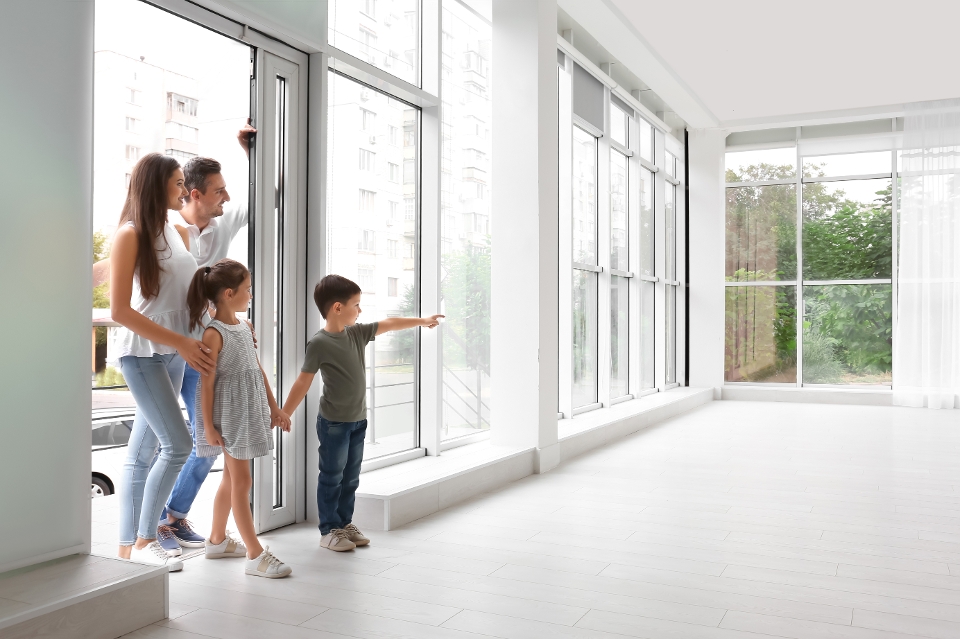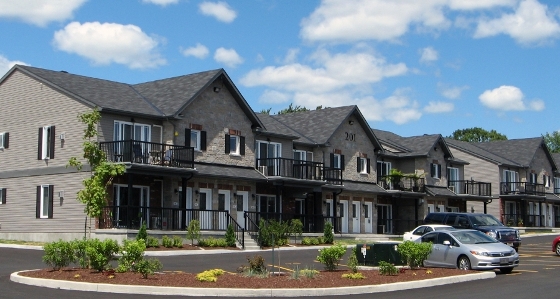Buying your dream home can be one of the biggest decisions that you will make in your life. You want everything to be perfect, right down to the smallest detail. The process of home buying can be stressful at times and perhaps even convoluted and confusing.
Hopefully, as you read on, your worries will cease, and your questions will be answered. Buying a home is a big deal, but not a scary one, if you have the right knowledge and the right Realtor.
As premier agents specializing in Vernon real estate, we recommend that you familiarize yourself with the language of buying a home. Understanding the following key terms will allow you to be an active agent throughout your process.
Hidden Costs of Buying a Home
Finding a home that meets your criteria, in the location that you want, and at a price you can afford is a great beginning in the  process of buying your new home. However, there are a few hidden costs that you should know about and budget for.
process of buying your new home. However, there are a few hidden costs that you should know about and budget for.
Unexpected Extras
The closing price of your dream home is not going to be the final price of your home. Instead, you will need to budget for the hidden costs. These costs include:
- Closing fees, such as lawyers’ fees, taxes and any lender fees.
- Home insurance for your belongings as well as insurance against fire, flood and earthquake damage.
- Moving costs.
- Property tax and strata fees, if applicable.
Services
As a homeowner, you will also be responsible for services such as cable and the internet. Other costs that you will need to consider when moving in include:
- Utilities – electricity and gas.
- City run services such as garbage collection, recycling and water usage.
- Any tools or machinery for the upkeep of the exterior of your home – garden hoses, rakes, a lawnmower and perhaps a place to store these items.
Look Ahead
When choosing your perfect home, it is a good idea to look at what maintenance and jobs your home will need in the next few years. The amount of work and the costs associated with this work should be considered a part of the final price of your home and might include:
- What condition the roof of your home is in and when it will need replacing.
- Whether you will need to repaint the interior or exterior of your home.
- Whether or not the fence needs fixing or repainted.
- Whether any appliances need to be repaired or replaced.
Is Buying a Fixer-Upper a Good Idea?
Buying a home that needs some extra attention can be a great way to save money, but it can also be full of unexpected complications and cost-overruns. As the premier agent for all your Vernon real estate needs, I have put together some tips that will help you determine if your fixer-upper home is a good investment or just a money pit.
Asses the Neighbourhood
The adage – buy a bad home on a good street – applies if you are looking to buy a fixer-upper. You can always boost the value of your home by doing renovations, updating landscaping and repainting the outside of your home. Before making a final decision, take a long look at the location of your home and the community it is in. In some cases, up and coming neighbourhoods may be your best investment.
Hire a Pro
A home inspection is a must if you are buying a fixer-upper. Hire a professional and ensure that they check the following:
- Plumbing and electrical
- Roof and exterior of the house
- The heating and cooling systems
Repairs, upgrades or replacements to any of these systems can be costly in both money and time and you should take this into consideration before making any final decisions.
Structural vs. Cosmetic
Many cost overruns and problems in any fixer-upper are directly related to structural renovations or repairs. Make sure to determine what renovations are going to be strictly cosmetic and what ones may require more time and money.
Cosmetic renovations include:
- Repainting walls and stripping or replacing wallpaper
- Refinishing floors or laying laminate, tile or carpet
- Replacing bathroom subfloors, toilets and leaky faucets
- Replacing baseboards or refinishing trim, cupboards or doors
- Changing light switches or replacing receptacles
More expensive structural renovations include:
- Removing walls to open up kitchens or expand living space
- Installing or replacing the windows in a house with more energy efficient ones
- Completing kitchen or bathroom renovations
- Finishing basements or increasing ceiling height
- Shoring foundations because of shifting from soil erosion or water run-off
Although these structural jobs may be more costly, you may still find good value in a home that requires many renovations. Before making any decisions, get an estimate on all the work that will need to be done and include that in the overall cost of your home. You can then compare that total with the cost of similar homes in the same or comparable neighbourhoods to assess if indeed that fixer-upper is a good investment or just a money pit full of cost overruns.
These tips should help you better determine if buying a fixer-upper is the right decision for you. If you would like more tips on what to look for when buying a home that needs work or are interested in some of the new and exciting real estate options available in Vernon, please contact me today.
Should I Buy in a Hot Market?

Often, we are asked by buyers who are entering the market for the first time whether it makes sense to purchase in a market as hot as the Okanagan has been for a very long time.
The answer is yes, assuming you’re planning to be in the market for the long haul. In any market, planning to own for the short term, or considering a fix and flip, is more risky.
There are a number of factors in the marketplace today that still make the decision to buy a ‘two thumbs up’. These factors are as follows:
- Interest rates are still historically low. Although we have experienced a few rate hikes during the past few years, interest rates are still extremely favourable.
- Renting often cost more on a monthly basis. As rents creep up (maybe increase a little faster than creeping), even as house purchase prices also increase, the math still usually works in favour of paying a mortgage versus renting.
- Over the long run owning real estate is always a great investment. History seems to repeat itself. Even most of those who purchased during the last real estate boom ending in late 2008 are realizing gains if their homes are sold today. The trick is to stick it out and wait until you are in a position to sell high (or higher!).
- Owning is an investment in your future. If you are renting, continuing to rent is helping someone else invest in their future.
Investing in real estate is one of the best investments you can make. If you are purchasing a home as your principal residence, it is currently one of the best tax-free investments you can make. Even though prices are higher than they were a few years ago, or even last year, a long-term investment in your future is always a good one.
Our recommendation is buy now – and don’t wait. You don’t want to be looking back in a year saying to yourself: “I wish I had bought last year when the prices were lower!”
Is Buying a Brand-New Home a Good Investment?
There really is nothing like moving into a brand-new home, one that no one but you has ever lived in. However, there are 5 main factors for buyers to consider when making the decision to purchase a brand-new home versus a previously owned home. These 5 factors are listed below:
- GST: Previously owned homes are generally not subject to GST (with some exceptions such as working farms, some vacation homes, and homes that have been substantially renovated), whereas new homes are. In the North Okanagan most buyers can count on paying the full 5% GST with no rebate due to home prices being much higher than the allowable price ceiling.
- Landscaping: Older homes often have more mature landscaping, although there is no guarantee that the landscaping is perfect. On the other hand, most brand-new homes include minimal if any landscaping with purchase. This can be a large expense and one that you want to include in your final calculations when you purchase.
- Appliances and Window Coverings: Many pre-owned homes have appliances that can be negotiated into an offer to purchase. Most brand-new homes do not include appliance packages or window coverings, adding two more big ticket items to the final tally at the bottom line.
- Deficiencies: Older homes may not have brand-new innards, however someone has lived in the home prior to you, and has worked out all the kinks. If you have never owned a brand-new home, then you may not be prepared for all the post move-in visits by the many trades people coming to fully complete or repair something. It’s a revolving door for your first few months of living in your brand new home – be prepared!
- Construction Zone: Settling into an older home in an established area on a quiet, tree lined street is often a pleasant experience, one that you can enjoy immediately. On the other hand, most brand-new homes are built in brand-new subdivisions. And unless you purchase the last lot in the subdivision, your neighbourhood is going to be under construction for years to come. This means years of trucks and traffic and jackhammers and nail guns until the subdivision is complete.
As you can see, purchasing a brand-new home isn’t the least costly, or the most hassle/stress free option. However, as mentioned above, if you’re up for it and are prepared for a few costs and inconveniences, new homes in Vernon and anywhere else, are magical.
Can I Buy a Home if I have a Bad Credit Score?
If you think you cannot buy a home with bad credit, think again. The truth is that you can even with a low credit score. However, you must realize that doing so might be more expensive compared to those who have good credit. It also requires time and effort on your part. At this point, there are things you can and cannot afford and it pays to take note of what things to consider when purchasing a home with bad credit.
Improve Your Credit Score
One of the first things you may need to investigate if you intend to buy a new home and you have a bad credit score is how to improve that score and thus your purchase options. You can do so by keeping track of what you owe and making sure you have settled your debts once and for all. Once you have paid these debts, you will be ready to tackle the new mortgage.
Calculate Your Finances
You have to take your finances into account when you are deciding to buy a home even with bad credit. Ask yourself: “Am I ready to pay for the new home?” Take note that if you have bad credit now, you once faced struggles with your finances. While buying a new home can help you build better financial stability, you also have to accept that investing in a new home requires a lot of money. Try to see to what extent your financial means can meet your need for a new home.
Consider the Down Payment Too
As mentioned, a while back, owning a home can be more costly if you have bad credit than if you have good credit. You should expect then that you might need to have a larger down payment because of that not-so-good credit. Basically, you will be required to pay at least 20% of the home’s value up front. If you can go beyond that minimum requirement then you will have a better chance of attracting lenders to grant you the mortgage you need to pay for the remaining balance. Offering a down payment higher than the basic requirement will demonstrate to lenders that you are committed to paying the loan according to their terms.
Make the Necessary Documentation
Your financial history counts. You have to make sure that when you are arranging a mortgage for this new home, you talk to your lenders about your financial history. Give them the documents they need and explain why you had a bad score in the past. Perhaps you had an unstable job back then, but now you can explain that you are more than ready to pay your mortgage because you have a stable source of income.
Effort is important
Financial advisors always understand the reasons as to why you may have had a bad credit score in the past. However, you also have to exert your own effort to improve your standing in the market. Building a good credit score is an obligation and settling your debts is part and parcel of the requirements to improve your credit standing. If you intend to own a new home, it will pay to wait until such time that you know you are financially stable.
Never Rush Things
You do not have to rush things if you want to own a new home and you have a bad credit score at the moment. Make all necessary assessments of your financial history and see how ready you are for a new obligation. This obligation requires commitment and you can start being committed by improving your credit score and building a better credit reputation. Take time out to reflect on the mistakes you may have made in the past and see why it resulted in something that is unfavourable for your current financial standing. When you are ready, you will be able to sleep peacefully at night even when you know there is a new mortgage to pay.
Ask for Expert Help
There is always someone out there who can guide you in your desire to buy a new home even when you can’t see how you will manage it. Seeking that much-needed help will actually lead you to realize that there is a solution to your problem. Talk to us. We are more than ready to help you find the right investment with North Okanagan real estate.
Tips and Tricks to Buying your Dream Home
For many homeowners, nothing can be more thrilling and exciting than buying a brand-new house in which to live for at least several years, or who knows, maybe for a lifetime. This is truly an important moment in their lives and obviously, it needs to be handled correctly. If you are looking to buy a property in the near future and you need some advice, here are seven tips and tricks you should remember.
Don’t View Only One House
Who says that the first house you view is necessarily the one you have to buy? Luckily, there are plenty of properties in every major city in the world and potential buyers should take advantage of this. You should allot enough time to inspect one, two, three, maybe ten houses or even more, so that you have a better chance of making a great decision, Aim to inspect one house every day and you won’t be sorry with your choice later on.
Take Pictures of the Properties Visited
After viewing 15 or even 20 houses, no one would be able to remember all the details and features of each property. To keep a record of each home you see, it is highly recommended that you ask permission to take photos, or even video footage of the properties visited. Most homeowners will agree, and with the help of these visual records can later narrow down the list of houses according to your wishes, needs and preferences.
Don’t Rush
One of the biggest mistakes customers make, even when buying a relatively small house, is to get rushed. Some folks want to hurry up so that they don’t lose that property to another client. Others simply don’t have enough time for proper research. This can be a costly mistake, especially if the plan is to live in that house for a long time and perhaps establish a family and raise kids there. Buying a house is the biggest transaction in your life and in this case, nothing can be more important than allotting sufficient time to find a great property.
Location Always Matters
Everyone has heard this and that is because it is very important. The location of a property is not only strictly related to its overall price, but it also influences the quality of life of the homeowner for many years. Therefore, ask yourself first if you want a house in the middle of the city or somewhere outside the city center.
Similarly, some research should be done to find out what amenities are available around the property. If there are kids in the family, a good school nearby is important. Having a house close to a gym will be important to someone who works out often. Assess your needs first and then consider the location of your future property relative to those needs.
Consider the Neighbourhood
The neighbourhood is as important as the amenities around the house. Therefore, you are strongly encouraged to gather as much information about a particular neighbourhood as possible, in order to have more peace of mind later on. For example, a house might be beautiful, and it might come at a reasonable price, but what if there is a high crime rate in that region? Similarly, what if the neighbours are noisy, nosy or plain annoying? It is best to think about and investigate these aspects before signing a contract and moving with the entire family into the new property.
Undertake a Serious Home Inspection
Especially if you have your eye set upon a certain house and you are already thinking about arranging your personal belongings inside, you should have patience and commit to one last activity: arranging for a serious home inspection. A home inspection is done by professionals and will identify any-possible structural problems and issues. For example, problems with insulation and with the house foundation cannot be seen with the naked eye in most cases, but they are very important and they can cause a lot of troubles later on. Additionally, a serious home inspection done by a professional will guarantee that you are paying a fair price for the house in question.
Visit the House During Various Times of the Day
This is also a great strategy. Some properties might not stand out from the crowd at first, but what if the sunset viewed from the balcony is absolutely mesmerizing? Obviously, this is a great advantage and almost all potential buyers will immediately be attracted by this.
If you want the best array of houses for your selection, don’t forget to contact our real estate firm, Salt Fowler, and take advantage of our professional services. We can help you find great homes for sale in Vernon, BC and our real estate agents will certainly take into account all your preferences and needs.










